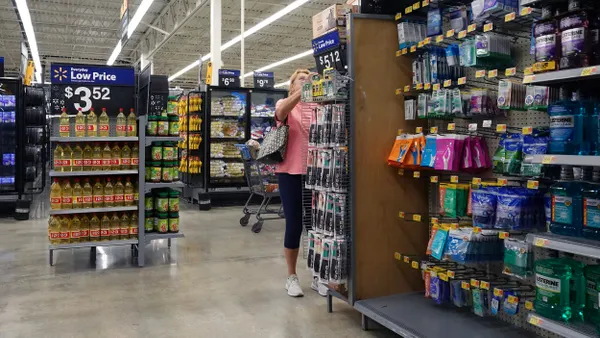Dive Brief:
- One-quarter of Gen Zers will secretly return Valentine’s Day gifts, according to SAP Emarsys’ data of 2,000 consumers.
- Returns are becoming a bigger problem for retailers, and it’s not just relegated to Gen Z. The vast majority of consumers, 86%, returned items in the past 12 months, according to research from SAP Emarsys released in January.
- Retailers ought to focus on strategies that improve customers’ purchasing decisions, according to Kelsey Jones, global head of product marketing at SAP Emarsys. The question is, she said, “How am I going to get it right the first time so I am not having to return the gift that I'm giving or that I'm getting from a loved one?”
Dive Insight:
Retailers are looking for ways to limit the number of returns customers make as the rate of returns increases along with the cost of restocking merchandise. Among the strategies retailers are exploring is improving their personalization capabilities so customers are getting just what they want.
Jones says often consumers looking to buy a gift for someone will think, “Oh well, I'll get a couple of different things, and then I'll just return whatever I don't use or whatever I don't need.”
With better personalization — and by using AI — businesses can better segment customer groups and target them with more relevant promotions, according to Jones. The goal is that instead of a consumer buying multiple items, hoping one will work as a gift, they’ll buy just the gift they need.
By leveraging AI, retailers can crunch a large amount of data, including browsing history, previous purchases, preferences and feedback of prior purchases, to then use on personalization efforts.
Such personalization eases “the burden of decision-making by providing curated options and ensuring a memorable gifting experience,” Jaime Bettencourt, SVP of revenue and brand marketing at Mood Media, told CX Dive in an email.
Nearly half of customers said recommendations — including in-store or online recommendations from a retailer — influenced them to purchase a specific brand or product while shopping for Valentine's Day, according to a recent Vibenomics survey of over 1,000 consumers.
Nearly 2 in 5 said social media ads influenced their Valentine’s Day purchases, and more than a quarter cited promotional emails, the Vibenomics survey found.
By personalizing such communication, customers are more likely to get just what they want. That increases both customer experience and loyalty, Jones said.
“Personalization capabilities are essential for facilitating informed and emotionally resonant gift choices, particularly during Valentine’s Day,” Bettencourt said. “By demonstrating a deep understanding of the consumer and offering tailored suggestions, retailers can create intimate and seamless shopping experiences that leave a lasting impression.”










